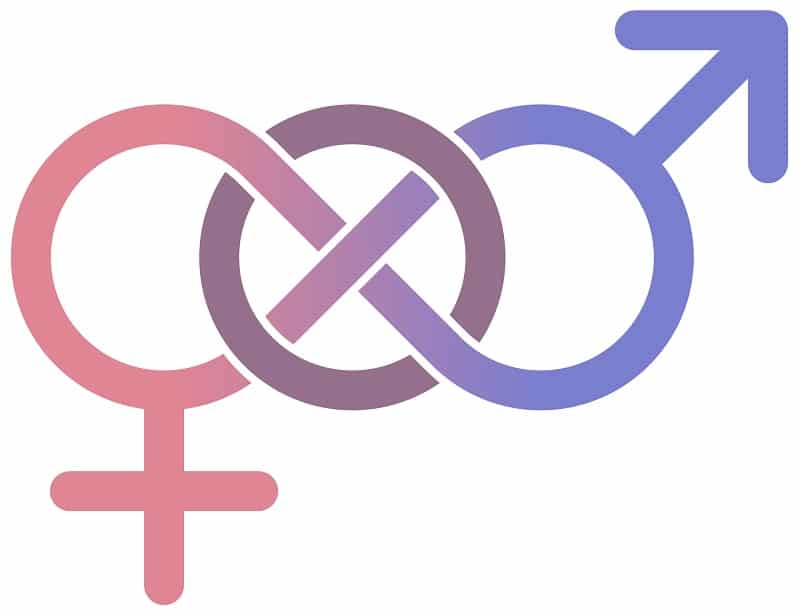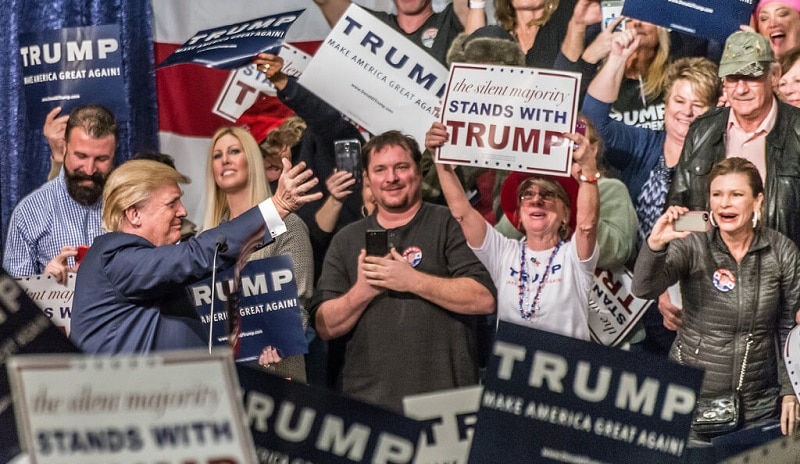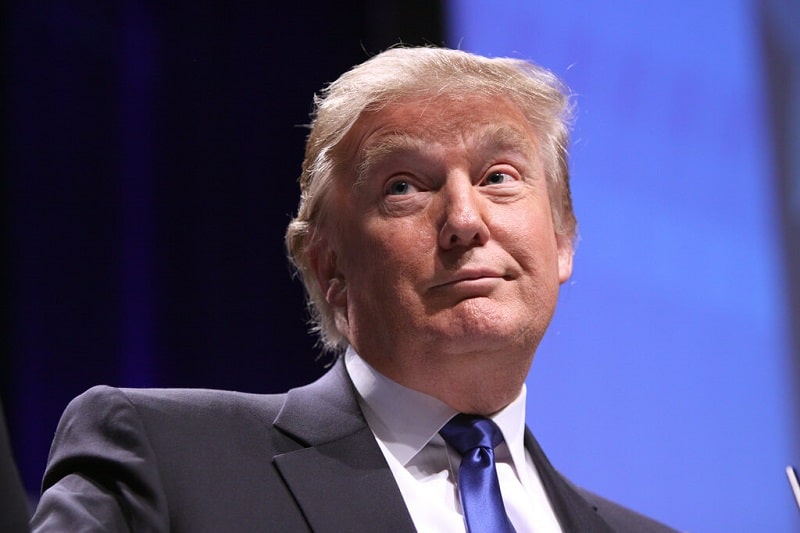Gender stereotypes are older than human civilization itself, and they don’t seem to see an end soon. But politics was among the few fields that seemed to be free of such ideas. No presidential candidate in the last decades dared to address gender stereotyping in the way Donald Trump boldly did. A surefire way to commit political suicide, some might say.
Trump, however, proved them wrong by trumpeting sexist and racist remarks on national television and still being seriously considered for what might be most important position in the world. Many are in disbelief: how can this be possible in 2016? And more importantly, how can this be possible in a country where freedom, democracy, and equality are leading governing principles?

First, we’ll take a look into the origins of gender stereotyping and how they prevail upon laws, ethics, and morals in the American society. Then, we’re going to take a look at how these also affect the politics by entering the minds of Trump voters and observe how the public oversees or even acclaims gender stereotypes in the “right” context.
How Factual Are Gender Stereotypes?
Can our natural instincts for survival and perpetuation of our genes be the cause of gender stereotyping?
While the physiological differences between the sexes are impossible to challenge, many say denying the psychological differences between men and women would be absurd. But a meta-analysis of 46 comprehensive studies in the last 20 years might be able to prove them wrong. Psychology researcher Janet Shibley Hyde, Ph. D, discovered test subjects showed little to no difference in overall behavior based on their gender alone.
One thing is sure, though: Looking at gender from the wrong point of view further increases the perception of these differences.
Effects of Gender Stereotyping in Today’s Society
The idea that men are hunters or providers and that women are nesters definitely has a historical and evolutionary basis, but is it still valid today?
Gender stereotypes have been thoroughly enforced throughout history. Even though today’s society seems to be the most tolerant so far when it comes to each gender’s definition and role, gender stereotyping is far from over. However, some of the consequences of gender stereotypes go beyond most people’s understanding. Some might argue they affect women more often than men, but an in-depth look at the actual stereotypes proves otherwise.
Society lead men to believe they need to be physically and emotionally strong, even glacial at times. It portrays men as providers for their families and defenders of the “weaker sex” and their offspring. Women are called “the weaker sex” mainly because of their physical “inferiority”. Many societies see women as caring, nurturing, gentle human beings who should want to procreate. A prevalent idea is that women are more sensitive, up to the point of irrationality or mental unstableness, and are less motivated to or simply should not master.
Not wanting or being able to fulfill these roles often times leads to identity crises and even questioning an individual’s sexual orientation. Studies shown that men tend to be more affected by the pressure of gender role than women.
Gender Stereotypes in the Workplace
It is generally known that women are paid less. Being lead away from male-dominated fields is another issue women’s rights activists try to fix. Countless campaigns advocating for wage equality and aiming to stop discrimination against women developed over time, some more successful than others.
But little is said about men who are not given equal chances to female-dominated fields or jobs. Becoming a secretary, a babysitter, or a nurse can be significantly more difficult for a man.
Gender Stereotypes in the Media
Gender stereotypes in media are maybe the easiest to assimilate by the large public. Many media materials endorse gender roles differences as fundamental and timeless, and this goes beyond TV shows, magazines, or the internet.
Some of the best-selling books confidently claim that heterosexual couples have communication issues because of their different thinking patterns. While this might be true, it should not be blamed on a certain gender or generalized. Human beings have different thinking patterns no matter their sexual identity. In fact, every one of us has met at one point or another a person of the opposite sex that completely shared their views on certain matters.
These differences will always exist. They’re what makes us unique and provide individuality, character strength, and drive. However, we should not associate these with gender.
Gender Stereotypes in Advertising
Advertising is one of the main proclaimers of differences among men and women. TV commercials, banners, or posters directly or discreetly emphasize the importance of being manly or ladylike. The setting, colors, voice tone, and even the music used in an advertising campaign widely differs in terms of the targeted sex. All these subliminal messages have strong impacts over our opinions, actions, and attitude towards others. This not only affects our behavior towards those of the opposite gender; it changes our whole perception.
The premise that men and women are fundamentally different from a psychological point of view is still highly debatable. However, the gender strain that comes with either being a male or a female is not only unreasonable but also destructive. After overhearing dozens of hints that men and women are primordially different, individuals might find themselves thinking just that. This further increases the gap between genders and hinders communication, ultimately preventing our society from truly progressing.
Donald Trump: A Case Study of Gender Stereotypes in Politics
Just when we thought gender stereotyping had nothing to do with politics anymore, Trump enters the stage.

It’s no secret that presidential campaigns, or political ones in general, use mass manipulation tactics, subliminal messages, and other psychological “cheats” to win voters. Donald Trump, however, took it to another level. This video gives a great example of how the accomplished businessman uses every resource at hand to outwit interviewers, competitors, and voters:
For those who do not fully agree with Trump’s views on women, diverting attention from his misogyny is his leading strategy. By simply mentioning what he and many Americans believe to be real issues, Trump enjoys ovations and cheers during and after every speech. However, analysts speculate that Trump’s attitude and remarks are not at all spontaneous. They seem to be part of a highly successful strategy that might someday put his face on a banknote.
Another prevalent idea is that Trump knows exactly what he’s doing. He gained the appreciation of those who believe in race or gender stereotypes by aggressively bashing on their targets. Women, Muslims, and Mexicans have been the center of attention in many of Trump’s speeches. But he also earned support despite these traits. By superficially mentioning more concrete issues that affect the livelihood of U.S. citizens, Trump made himself a viable choice.

The Contradiction
So what determines so many female voters to support Donald Trump? And what about the male voters who despise the businessman but will vote for him anyway?
Women make up for about 51% of the voting population in the U.S., and studies determined that 7 out of 10 female voters are not big fans of Trump. But how come the other 30% of the women who are eligible for voting support the controversial candidate? Well, the other 3 out of 10 women will vote for Trump mainly because they don’t want Hillary to win. Another important reason is the political party Trump represents in the 2016 elections. The demographic groups which generally support the Republican party according to this study, are:
- Mormons, of whom 76% lean towards voting republican.
- Evangelical millennials, with 70% of them supporting the Republican candidate.
- Those in rural communities and/or in low-income households.
Donald Trump’s opinions appeal to many American male’s egos. Many consider his remarks preposterous, but for others, it’s everything they have been accused of believing broadcast on national television. And by a potential leader! This naturally incites the crowds and makes him one of the most talked about Americans of 2016. His charisma, confidence, and nonchalant attitude have proven highly effective. You can read more about this phenomenon in our article about how Trump uses suggestibility to gain followers.

In addition, some of the Trump supporters who do not agree with every one of his opinions will vote for him anyway. They trust the U.S. government and the White House will mitigate his attitude once he becomes president.
A Short Recap
After looking at these facts, the contradiction in the minds of Trump supporters becomes understandable. After all, Trump himself seems to have conflicting opinions – but how many are really his? Political analysts said more than once that Trump is nothing more than an incredibly skilled salesman. In fact, Trump trumps any argument that he might not be a suitable leader with the fact that he is a knowledgeable businessman. Moreover, he brazenly fights misogyny accusations with more misogyny.

Unfortunately, presidential elections are more about choosing the lesser evil than about choosing the perfect leader. No race is contradiction-free since there is no perfect candidate. Donald Trump definitely is an atypical one – and this is partly why he earned the sympathy of so many voters despite his highly controversial stance on gender, race, or religion.
